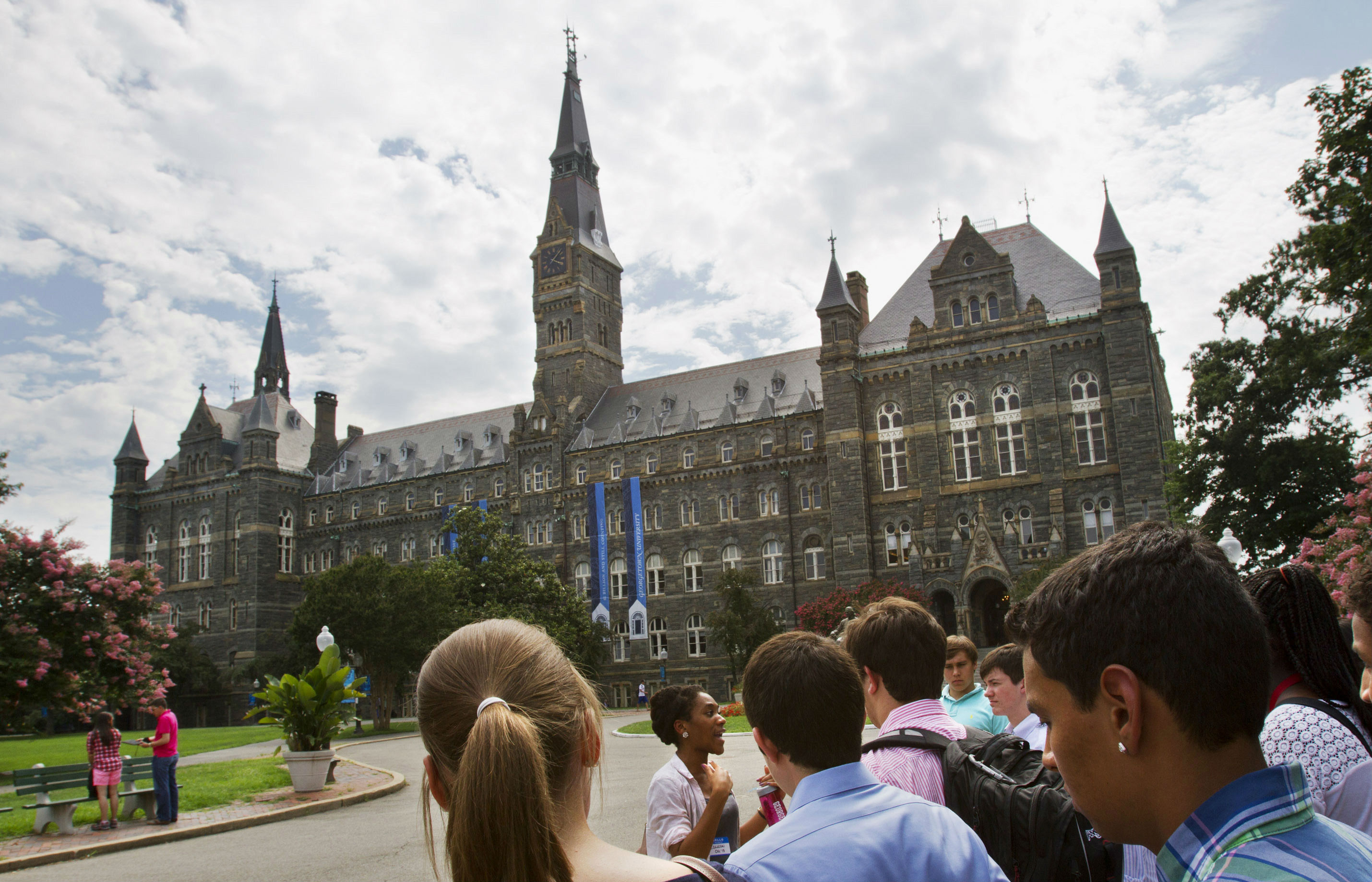Georgetown University in Washington D.C. is to give preferential status in its admissions process to descendants of slaves. The provisions will be similar to those offered to children and grandchildren of alumni.
The President of the Jesuit institution, John J. DeGioia, made the announcement yesterday (Thursday 1 September), explaining that the measure was in atonement for the university’s past. Georgetown profited from the sale of 272 slaves in 1838, when it was experiencing financial difficulties. The sale, worth about US$3.3 million in today’s money, was organised by two of Georgetown’s early presidents, both Jesuits.
Founded and run by Jesuit priests in 1789, Georgetown relied on the Jesuit plantations in Maryland — and the sale of produce and slaves — to finance its operations. For the 1838 sale, slaves were taken from the Maryland plantations and shipped to estates in Louisiana.
Last September Mr DeGioia assembled a 16-member working group of scholars, students, alumni and administrators to consider how the university should address its history. An anti-racism demonstration by 250 students in November gave added impetus to their work.
The group found the university’s dependence on slavery was greater than originally believed, with slave labour and sales factored in to the original financing model of the university. As well as working on the plantations, slaves also worked on campus, many of them hired from wealthy students. The committee said that it was likely that all of the earliest buildings on campus were built with slave labour.
Two campus buildings were named for the university leaders who orchestrated the 1838 sale, Fr Thomas F. Mulledy S.J. and Fr William McSherry S.J. Now one of these will be renamed Isaac Hall to commemorate the life of Isaac, one of the slaves shipped to Louisiana in 1838, and the other Anne Marie Becraft Hall, in honour of a nineteenth-century founder of a school for black girls in Washington.
In the documents of the sale, Isaac is listed with his children, Charles, his eldest son; Nelly, his daughter; and family members who may have been children or grandchildren: Henny, Julia and Ruthy.
Anne Marie Becraft later joined the newly founded Oblate Sisters of Providence in Baltimore, the oldest active Catholic sisterhood in the Americas established by women of African descent, and was known by the name of Sister Aloyons.
Professor Craig Steven Wilder of the Massachusetts Institute of Technology, who has studied universities and slavery, told the New York Times that while more than a dozen US universities have publicly recognised their links to slavery, the Georgetown initiatives go beyond any enacted by a university in the past 10 years.
However, he warned that the significance of the preferential status in admissions would rest on the degree to which Georgetown reached out to descendants by identifying them, making sure they are aware of the benefit’s existence and actively recruiting them to the university.
Karran Harper Royal, a descendant of the slaves sold in 1838, told the newspaper that she appreciated the decision to rename the buildings and a further plan to create a memorial, but the initiatives fell short of what descendants had hoped for. She said that Georgetown should have offered scholarships to descendants, and included descendants on the committee that developed the recommendations.
In his message to the Georgetown community yesterday announcing the actions that the university will take with regard to its past connections with slavery, Mr DeGioia said there would be a Mass of Reconciliation in conjunction with the Archdiocese of Washington and the Society of Jesus in the United States, and engaging the Georgetown community in a “Journey of Reconciliation". Also established will be a “living and evolving” memorial to the slaves from whom Georgetown benefited, with a Working Group, including descendants of those slaves, to advise on its creation; and an Institute for the Study of Slavery and Its Legacies at Georgetown to support the continued, active engagement with descendants, sustained research and other actions. Meanwhile Georgetown’s Library and its Special Collections will be “strengthened to promote scholarship in the field of racial justice and deepen archival resources to support genealogical work”.




 Loading ...
Loading ...